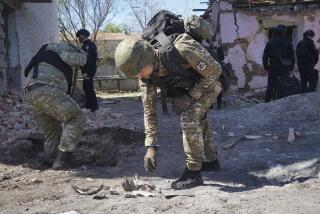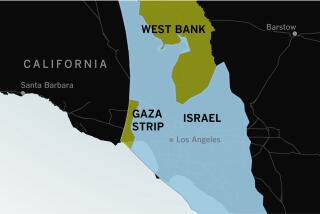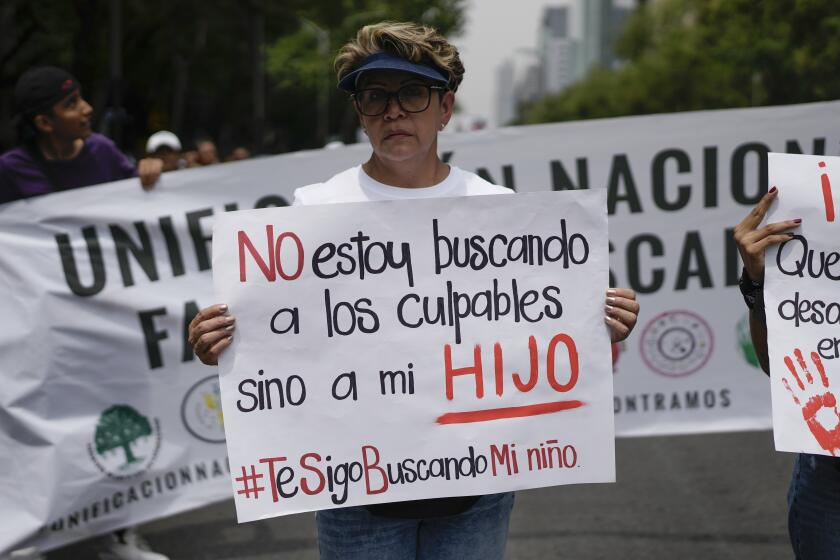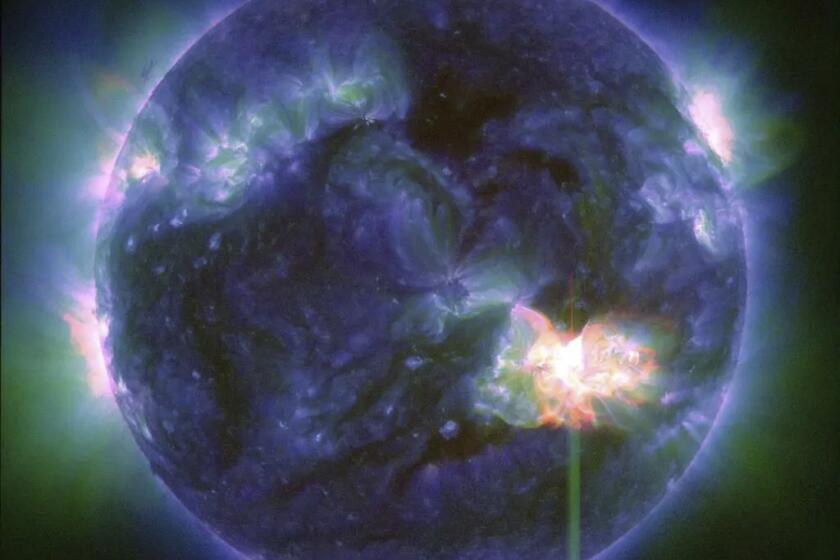Radicals Launch Drive to Make Yeltsin President : Russian republic: Now only chairman of the legislature, he is rated a shoo-in for the election in June.
A powerful group of radicals launched a drive Saturday to make Boris N. Yeltsin the first popularly elected president in Russian history, naming him as their candidate in an election scheduled June 12.
Winning the election would give Yeltsin the kind of enhanced executive power in the huge Russian Federation that Soviet President Mikhail S. Gorbachev now wields nationwide. He would also attain a level of political legitimacy that Gorbachev, never tested in broad popular elections, could only envy.
Yeltsin is now technically only chairman of the Russian republic’s legislature, although he is often described as its president.
The move on his behalf by the Democratic Russia movement came as Yeltsin planned to meet with striking coal miners to try to work out an agreement on government concessions. The two-month stoppage has crippled the metallurgy industry and cost millions of dollars in lost production.
Yeltsin is scheduled to fly Monday to the Kuzbass region, site of the country’s second-largest coal field, to wrap up talks with strike leaders and possibly put an end to the walkout.
The coal strike appeared Saturday to be winding down anyway with reports that miners in Mezhdurechensk, the biggest city in the Kuznetsk coal basin, had returned to work.
But if Yeltsin does manage to look as if he had ended the strike, he will have won the latest round in his long-running rivalry with Gorbachev and gotten his presidential campaign off to a good start.
Democratic Russia, which claims 1.3 million members, approved a plan Saturday to begin a signature drive for Yeltsin’s formal nomination at a mass rally planned for Monday evening in Moscow. According to election rules, 100,000 signatures are needed to make the nomination formally effective.
Yeltsin, with his unequaled popularity among the Russian masses, is considered a virtual shoo-in for the presidency, yet discussion among Democratic Russia members indicated that the campaign will subject him to painful scrutiny, starting in his own camp.
At the moment, the outspoken Siberian is under fire from some radicals for an agreement he signed Tuesday with the leaders of eight other republics and with Gorbachev. Meant to lay the groundwork for a new Union Treaty to revamp the country’s federal system, it included an appeal to workers not to strike and a call for a tough “special regime” in key industries.
One Democratic Russia member demanded to know how Yeltsin could sign an agreement with Gorbachev, whom he had accused only two months ago of lying and abuse of power.
Yeltsin aide Gennady E. Burbulis, representing Yeltsin at the session, derided the accusation and others like it in the Soviet press as showing a “certain naivete” about politics.
“We see politics not as being about the relationships between various figures but as a means to help people live better,” Burbulis said.
Yeltsin’s position on Gorbachev’s actions has not changed, he added, but the Russian leader was eager to strengthen his position by joining with the eight other republic heads in an agreement.
“Now it’s nine republics versus the center,” rather than Russia struggling alone, Burbulis said.
If he is elected Russia’s president, Yeltsin is expected to use his enhanced powers to hasten radical economic reform, foster creation of private farms out of state-owned collective holdings and fight the Kremlin’s claims on control of parts of the Russian economy.
Under the current draft of the Russian presidency law, he would have the power to issue decrees but not to disband the republic’s Parliament or other legislative bodies.
Although the presidency law will not be final until mid-May, pre-nominations for the presidency have begun to proliferate, with at least three candidates poised to go against Yeltsin’s seemingly unbeatable popularity and extensive network of supporters.
One of them is Vladimir Zhirinovsky, the 44-year-old chairman of the Liberal Democratic party. He believes that Yeltsin’s “frank anti-communism is already putting off many sensible people,” according to an interview he gave the weekly Literary Gazette last week. Zhirinovsky’s campaign platform includes a proposal for unlimited production and sales of vodka.
Yeltsin’s main conservative rival appears to be Moscow economist Alexei A. Sergeyev, who is backed by Communist Party hard-liners as well as by the right-wing United Workers’ Front. Sergeyev has announced that he will stay true to the Communist reliance on the strengths of the working class--unlike Yeltsin, who wants to veer toward private ownership.
Several groups have also moved to nominate former Interior Minister Vadim V. Bakatin, who is seen as a popular moderate with close ties to Gorbachev. Bakatin has not yet said whether he will run.
More to Read
Start your day right
Sign up for Essential California for news, features and recommendations from the L.A. Times and beyond in your inbox six days a week.
You may occasionally receive promotional content from the Los Angeles Times.






